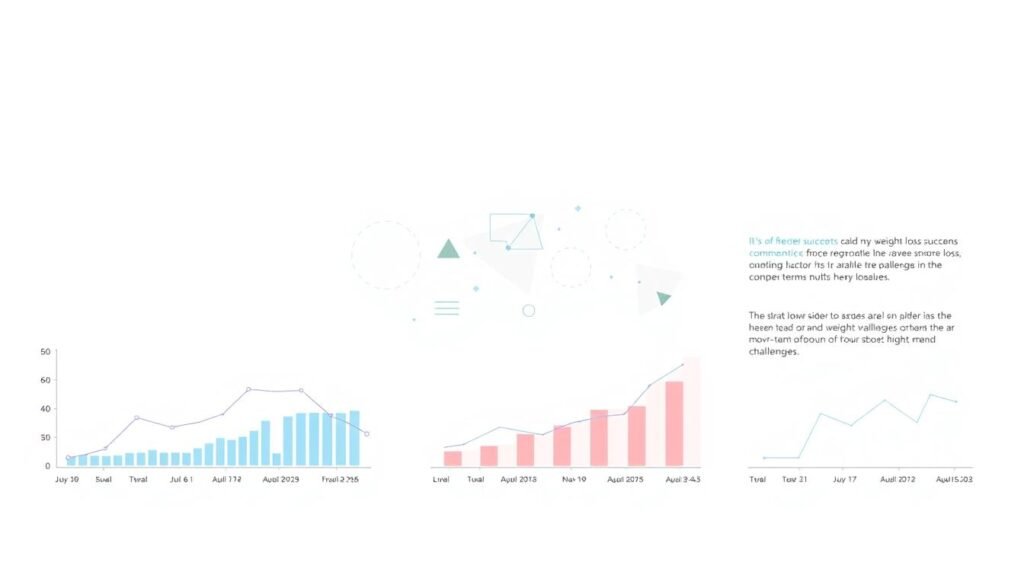When I first started my journey to lose weight, I thought it was all about willpower. I believed that if I just pushed myself hard enough, I could achieve the results I wanted. But over time, I realized that motivation is more than just a fleeting feeling—it’s a system that requires understanding, patience, and consistent effort. It’s not about quick fixes but about building habits that last.
Motivation plays a critical role in long-term success. Small daily actions, like choosing healthier foods or incorporating exercise into your routine, can lead to significant changes over time. For example, a 2021 review found that resistance training for at least 4 weeks may help decrease body fat by an average of 1.46%1. These small wins keep you energized and focused on your goals.
In this guide, we’ll explore the science behind weight loss, including how factors like diet, exercise, and sleep impact your body. We’ll also discuss the challenges of maintaining motivation and how to overcome them. By the end, you’ll have a clear plan to stay motivated and achieve lasting results.
Key Takeaways
- Motivation is key to long-term weight loss success.
- Small daily actions can lead to significant changes over time.
- Resistance training can help reduce body fat effectively1.
- Understanding your body and habits is crucial for lasting results.
- Intrinsic motivation leads to more consistent progress than extrinsic factors2.
Understanding the Challenges of Weight Loss
Weight loss is often seen as a simple equation of diet and exercise, but the reality is far more complex. Many factors, both internal and external, can influence your ability to shed pounds and keep them off. One of the most overlooked challenges is the impact of modern industrial chemicals on our bodies.
The Impact of Forever Chemicals on Metabolism
Chemicals like PFOS and PFOA, often called “forever chemicals,” are found in everyday items like non-stick cookware and water-resistant fabrics. These substances build up in the body over time and interfere with cellular metabolism. They replace hydrogen with fluorine, disrupting ATP production—the energy currency of our cells3.
Research from Clemson Professor William Baldwin shows a clear link between PFOS exposure and increased obesity risk. These chemicals inhibit the breakdown of fat, making it harder to lose weight even when you’re eating less and exercising more3.
Hormone Imbalances and Environmental Factors
Hormones play a critical role in regulating weight. Imbalances in hormones like insulin, leptin, and cortisol can lead to weight gain or make it difficult to lose weight. Environmental factors, such as exposure to pollutants and stress, can further disrupt these systems.
For example, studies show that ongoing interaction with healthcare providers or group settings significantly improves weight maintenance and long-term outcomes4. This highlights the importance of addressing both biological and environmental factors in your weight loss journey.
Understanding these challenges has been a game-changer for me. It’s not just about willpower; it’s about creating a system that works with your body, not against it. By addressing these hidden obstacles, you can set yourself up for lasting success.
The Truth About Weight Loss Statistics and Setbacks
Conventional weight loss methods promise quick results, but they rarely deliver long-term success. Studies show that only about 5% of people who attempt to lose weight achieve lasting results5. This startling statistic highlights the extreme difficulty of maintaining weight loss over time.

Take the contestants from season eight of The Biggest Loser, for example. Six years after the show, nearly all of them regained the bulk of their weight6. Their metabolisms were underperforming by an average of 499 calories per day—equivalent to a Big Mac6. This shows how the body fights back against weight loss, making it harder to sustain.
Breaking Down Conventional Success Rates
The “eat less and exercise more” strategy is often touted as the golden rule of weight loss. However, research reveals its flaws. In a 1997 study, women with obesity set ambitious weight loss goals, but only 9% reached a “happy” weight by the end of the program6. This disconnect between effort and results is a common issue.
Even in structured programs like the Look AHEAD study, only 26.9% of participants maintained a 10% weight loss after eight years6. These numbers underscore the need for a more sustainable approach. Calorie-counting and restrictive diets often lead to short-term gains but fail to address the root causes of weight gain.
Why “Eat Less and Exercise More” Often Fails
I’ve experienced this firsthand. Temporary weight loss felt like a victory, but the pounds always crept back. This cycle is common—studies show that most dieters regain their weight within a year5. The problem isn’t a lack of effort but a flawed system.
Mainstream advice often overlooks critical factors like environment and habit formation. For example, exposure to processed foods and sedentary lifestyles makes it harder to stick to healthy choices. Sustainable weight loss requires more than willpower—it demands a holistic approach that considers these hidden influences.
By shifting focus from quick fixes to long-term strategies, we can break the cycle of setbacks. It’s not just about losing weight but creating a lifestyle that supports lasting change.
Fat Forever: Breaking the Cycle of Long-Term Weight Gain
Breaking free from long-term weight gain requires more than just physical effort—it starts with the mind. Many of us struggle with self-limiting beliefs that sabotage our progress. These thoughts, like “I’ll never lose weight” or “I’m not strong enough,” keep us stuck in unhealthy cycles.
Scientific research shows that mindset directly influences physical changes and metabolic function. For example, studies reveal that individuals who track their weight and progress are more likely to maintain their weight loss7. This highlights the power of a positive and proactive mindset.

Identifying Self-Limiting Beliefs
Self-doubt and defeatism are common barriers to success. I’ve learned that identifying these negative thought patterns is the first step to overcoming them. Ask yourself: What beliefs are holding me back? Are they based on facts or fear?
Challenging these beliefs is crucial. For instance, instead of thinking, “I’ll always be overweight,” reframe it to, “I’m capable of making lasting changes.” This shift in perspective can transform your approach to weight loss.
Embracing a New Mindset for Change
The traditional “eat less and exercise more” approach often fails because it ignores the mental aspect of weight loss. A mindset-oriented strategy focuses on resilience and emotional well-being. It’s about creating a lifestyle that supports your goals, not just following a strict diet.
Integrating emotional health with physical fitness is key to lasting success. Research shows that sustainable weight loss involves losing between 0.5% to 1% of body weight per week7. This gradual approach ensures long-term results without extreme measures.
By embracing a new mindset, you can break the cycle of weight gain and achieve the success you deserve. It’s not just about losing weight—it’s about transforming your life.
Developing a Personalized Diet and Exercise System
Finding the right balance between diet and exercise was a turning point in my weight loss journey. I realized that a one-size-fits-all approach doesn’t work. Everyone’s body is different, and what works for one person might not work for another. That’s why I focused on creating a system tailored to my needs.

Finding the Right Diet for My Body
I experimented with several diets before finding one that truly matched my body’s needs. Popular plans like Jenny Craig and The Zone didn’t address my personal eating style. Research shows that almost any diet plan that reduces calorie intake results in weight loss, regardless of its macronutrient composition8. However, sustainability is key.
I learned that a balanced, long-term approach works better than short-lived fads. For example, the U.S. Department of Agriculture’s MyPyramid.gov provides guidelines on daily servings from each food group based on calorie levels for weight loss8. This helped me make informed choices without feeling deprived.
Creating a Sustainable Exercise Plan
Exercise was another critical piece of the puzzle. I started with small, manageable changes and gradually increased intensity. Experts recommend at least 30 minutes of moderate physical activity most days of the week for effective weight management8. Consistency was more important than intensity.
I also adjusted my caloric intake based on my metabolism and lifestyle. For instance, if I had a busy week with less time for exercise, I reduced my calorie intake slightly to stay on track. This personalized approach made it easier to stick to my goals.
| Diet Plan | Pros | Cons |
|---|---|---|
| Jenny Craig | Structured meal plans | Expensive and rigid |
| The Zone | Balanced macronutrients | Complex to follow |
| Mediterranean | Flexible and heart-healthy | Requires meal prep |
Monitoring progress through lab tests and self-reflection helped me refine my approach. For example, I tracked my weight and energy levels to see what worked best. This ongoing evaluation ensured that my system evolved with my needs.
Ultimately, the journey is personal. By tailoring my diet and exercise plan, I found a way to lose weight that felt sustainable and enjoyable. It’s not about quick fixes but creating a lifestyle that supports long-term success.
Addressing Underlying Health and Hormonal Issues
Understanding the role of hormones in weight management was a game-changer for me. I realized that my struggles with weight weren’t just about diet or exercise—they were deeply tied to my body’s internal systems. Hormonal imbalances can affect everything from metabolism to energy levels, making it harder to lose weight or maintain a healthy weight9.

Recognizing Thyroid and Metabolic Influences
Thyroid hormones, especially T3, play a critical role in regulating metabolism. When my thyroid wasn’t functioning properly, I noticed a significant drop in energy and an unexplained weight gain. Hypothyroidism, which affects about 4.6% of the population, can slow metabolism and lead to weight issues9.
Inadequate hormone replacement can stall weight loss efforts. For me, getting the right dosage of thyroid medication was essential. Comprehensive lab tests helped identify the problem and guided my treatment plan. This personalized approach made a noticeable difference in my energy levels and weight loss journey.
Managing Insulin, Leptin, and Cortisol Levels
Insulin and leptin are two other hormones that significantly impact weight. Insulin resistance, often linked to weight gain in the abdomen, can make it harder to lose weight10. Leptin, which regulates hunger, can become less effective when levels are too high, leading to constant cravings.
Cortisol, the stress hormone, also plays a role. High cortisol levels, as seen in Cushing syndrome, can lead to obesity in about 80% of affected individuals9. Managing stress through mindfulness and lifestyle changes helped me balance cortisol levels and support my weight loss goals.
By addressing these underlying health issues, I was able to approach weight loss more intelligently. It’s not just about cutting calories—it’s about understanding and working with your body’s unique needs.
Implementing Practical Strategies for Long-Term Success
Achieving long-term weight loss success requires more than just willpower—it’s about creating a system that works for you. Over time, I’ve learned that small, consistent actions and a supportive environment are key to maintaining progress. It’s not just about losing weight but building habits that last.

Building Supportive Habits and a Healthy Environment
One of the most effective strategies I’ve used is setting up my environment to make healthy choices the default. For example, keeping nutritious snacks like fruits and nuts within reach while avoiding processed foods has helped me stay on track. Studies show that successful weight maintainers often start their day with breakfast, a practice I’ve adopted to kickstart my metabolism11.
Another habit I’ve integrated is regular physical activity. Engaging in about one hour of exercise per day has been a game-changer for me11. Whether it’s a brisk walk or a workout session, consistency matters more than intensity. This approach has helped me maintain my weight loss over time.
Using Tools and Accountability to Stay on Track
Accountability has been crucial in my journey. I’ve used digital tracking apps to monitor my progress and make adjustments when needed. Regular weigh-ins, a common practice among successful weight maintainers, have allowed me to catch small gains early and address them11.
I’ve also built a network of support, much like assembling a team. Whether it’s a mentor, a friend, or an online community, having people who encourage and motivate me has made a significant difference. Research indicates that staying connected with supportive individuals or programs is linked to long-term success11.
By combining practical tools with a supportive environment, I’ve been able to sustain my progress. It’s not about quick fixes but creating a lifestyle that supports lasting change.
Conclusion
The journey to a healthier weight is a blend of science, strategy, and self-awareness. From understanding the impact of hormonal imbalances to creating a personalized diet and exercise plan, I’ve learned that lasting success requires more than willpower. It’s about making informed choices and building habits that align with your body’s unique needs.
Studies show that a daily caloric deficit of 500 calories can lead to a steady weight loss of about 1 pound per week12. This approach, combined with addressing underlying health issues, can transform the battle against weight gain into a sustainable lifestyle change. For instance, managing insulin and cortisol levels has been crucial in my journey13.
Small, consistent steps are key. Whether it’s tracking progress or seeking support, these actions build momentum over time. Remember, the path isn’t easy, but with persistence and the right strategies, achieving and maintaining a healthy weight is possible. Start today—your future self will thank you.
FAQ
How can I stay motivated to maintain a healthy weight?
What role do environmental factors play in weight gain?
Why does “eat less and exercise more” not always work?
How can I break the cycle of long-term weight gain?
What’s the best diet for my body?
How do hormones like insulin and cortisol affect weight?
What tools can help me stay on track with my goals?
How can I create a sustainable exercise plan?
Source Links
- https://www.healthline.com/nutrition/best-ways-to-burn-fat
- https://www.psychologytoday.com/intl/blog/never-binge-again/201912/permanent-weight-loss-motivation-what-it-takes
- https://www.hopkinsmedicine.org/health/wellness-and-prevention/maintaining-weight-loss
- https://pmc.ncbi.nlm.nih.gov/articles/PMC5764193/
- https://www.cbc.ca/news/health/obesity-research-confirms-long-term-weight-loss-almost-impossible-1.2663585
- https://www.vox.com/2016/5/10/11649210/biggest-loser-weight-loss
- https://medium.com/publishous/lose-weight-and-keep-it-off-the-fat-loss-forever-pyramid-5a6ebf79498a
- https://www.webmd.com/diet/features/how-to-design-your-own-diet
- https://www.healthline.com/health/hormonal-imbalance
- https://www.weightlossandvitality.com/blog/the-hormonal-symphony-of-obesity
- https://www.webmd.com/obesity/features/how-to-keep-weight-off-forever
- https://www.healthline.com/health/how-long-does-it-take-to-lose-belly-fat
- https://www.restartmed.com/destined-to-be-overweight-forever/?srsltid=AfmBOoopgixjI7hMTjBZSvU19XLfNb5PkHWUcxTdqKDTmtfkqBhzD171






